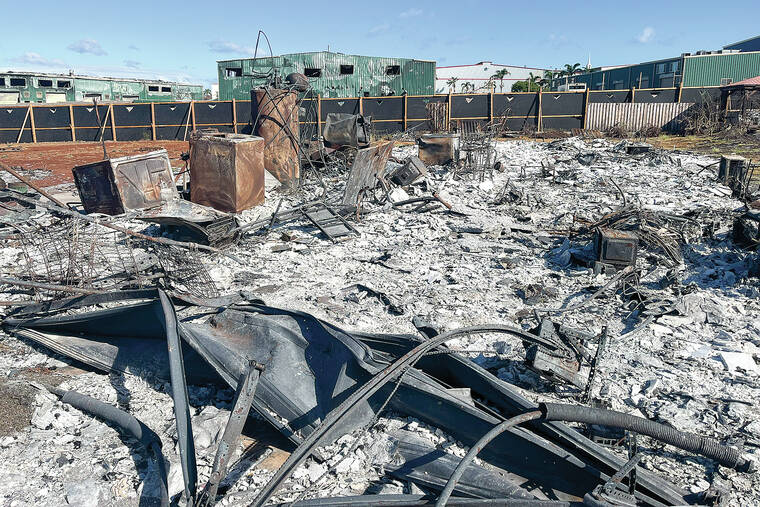Skyrocketing Maui rent shrinks housing options for wildfire survivors
Rent control might be needed as Maui landlords continue to demand more money for limited housing to accommodate survivors of the Aug. 8 wildfires, according to officials with the Council for Native Hawaiian Advancement who say victims might need to consider moving off-island for a year or more.
Some 1,100 households — or 2,768 individual evacuees — were still living in 11 Maui hotels as of Friday.
ADVERTISING
The number of survivors still housed in hotels fell from the original 3,000 families — or 7,796 individuals — who were initially housed in 40 hotels.
To get survivors into longer-term housing, CNHA has helped pay to cover the difference in rent between what the Federal Emergency Management Agency will pay and about $2,000 more that landlords typically want.
“It’s not sustainable,” CNHA CEO Kuhio Lewis told the Honolulu Star-Advertiser.
“We’re only putting a Band-Aid. Hundreds of millions of dollars are better spent building than paying these ridiculous rates for a limited time.”
Most families want to remain in West Maui to be closer to jobs and schools, which might be difficult given the limited supply of affordable housing.
Serious discussions need to happen about moving families to other islands, where rents are still high but closer to what survivors can pay, Lewis said.
“Families can afford $1,500 but rents (on Maui) are as high as $6,000, $7,000,” Lewis said.
So far, CNHA has helped relocate six Maui families to Hawaii island and four more to Oahu but more need to consider moving, Lewis said.
There are fewer listings for vacation rentals on sites like Craigslist since the devastating fires because landlords can make more through a temporary county property tax moratorium combined with higher rental rates by renting to fire survivors, Lewis said.
“It’s a mess,” he said. “There just aren’t enough housing options on Maui.
“People have to consider moving to Oahu or another island.”
Rents skyrocket Matt Jachowski, CNHA’s director of data, technology and innovation, has been crunching housing data to compare before and after the fires.
The disaster only exacerbated Maui’s shortage of affordable housing by destroying or leaving unlivable some 3,900 units — including several that contained multiple families.
“We lost a whole town,” Jachowski said. “You have no chance of living in West Maui without FEMA.
“You’re talking about multi-generational homes where rent was lower so you lost all of the low-income housing.”
Converting vacation rentals into longer leases of a year or more has been the focus of Gov. Josh Green, Maui Mayor Richard Bissen and the County Council to get survivors out of hotels but, Lewis said,
“We’re just paying too much for short-term rentals.”
“Families really need to be told what their options are, ” he said. “Their options need to include temporarily moving off-island because there’s just not enough inventory that anyone can afford.”


